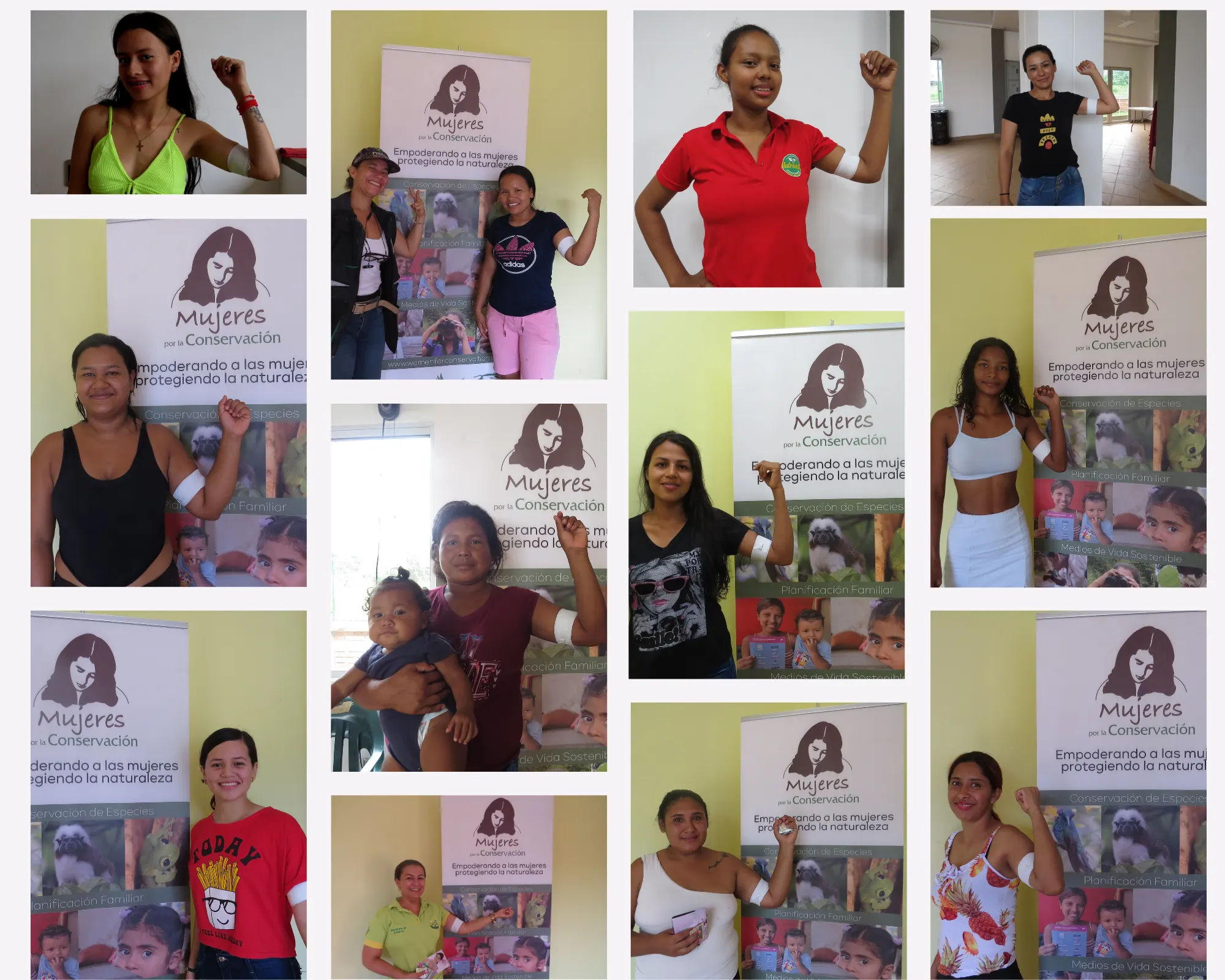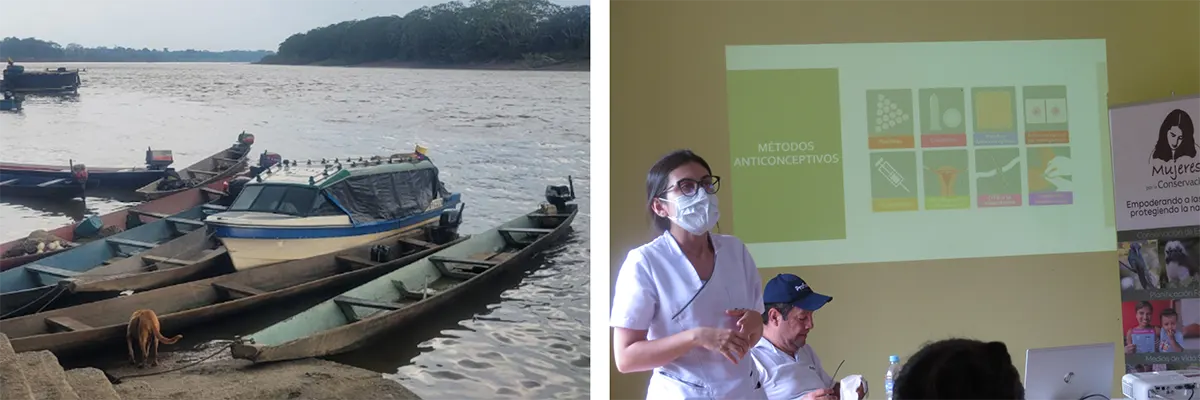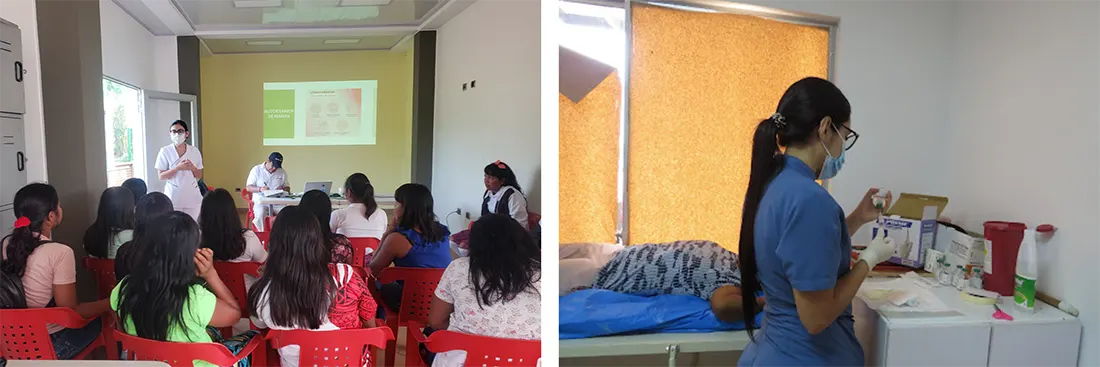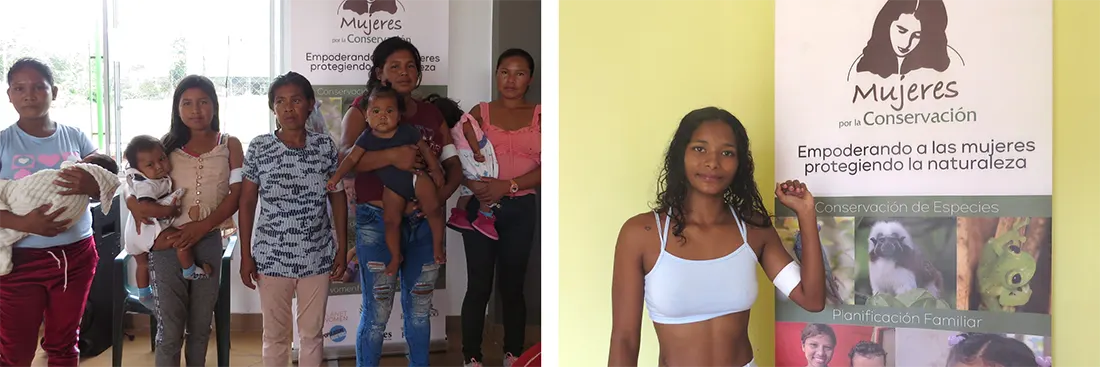

Mapiripán: Small Town in the Colombian Amazon
On April 19th, 89 women from our waiting list received access to free contraception in Mapiripán, Meta, a municipality in the Colombian Amazon. This was the largest number of women that have participated in Women for Conservation’s family planning initiatives so far during a single two-day event. It was the most remote location that W4C has ever been able to provide birth control which involved coordinating the transportation of healthcare professionals to the small rural town.
Mapiripán is a small town with around 7,000 people, located on the Rio Guaviare River in the department of Meta in the Colombian Amazon. This rural community buffer’s ProAves El Jaguar Reserve, home to charismatic wildlife such as the Amazon Pink River Dolphin (Endangered), Giant River Otter (Endangered), and the Jaguar (Near Threatened). It is reachable either by a 12-hour car ride or a small six-person cargo plane from Meta’s capital Villavicencio or by a four-hour ride in a small motorized boat from San José del Guaviare, the capital of the municipality Guaviare.
Women for Conservation specifically focuses on providing access to reproductive healthcare in rural villages and towns where women would otherwise not have access due to socioeconomic barriers. Since 2019, W4C has provided accessible family planning procedures and resources for over 1,200 rural Colombian families. W4C has also provided a total of 46 men from our waiting list with free vasectomies at our Family Planning Days between 2022-2023 due to our belief that contraception is a joint responsibility that should not fall solely on women.
Promoting Reproductive Autonomy in the Amazon Rainforest

For Women for Conservation and its partners, access to family planning is a basic human right, in which women can have the option to plan their pregnancies and choose if, and how many children to have. Ensuring reproductive autonomy in the Amazon Rainforest has holistic benefits for women’s health, educational and career opportunities, well-being for communities, and sustainability in the surrounding ecosystems.
Participants received access to the temporary Jadelle implant which is a subdermal contraceptive implant that works by releasing small doses of the hormone levonorgestrel. It has a 95.5% effectiveness rate against pregnancy and can be used for up to 5 years. The implant is a Long-acting reversible contraceptive (LARC) implanted into the upper arm, with a similar function to Mirena, Liletta, Kyleena, and Skyla IUDs which are popular in the US. The Jadelle implant has been used worldwide since 1983 and is listed on the World Health Organization’s List of Essential Medicines.
For its family planning initiatives, Women for Conservation partners with ProFamilia, a national Colombian NGO that works to promote sexual and reproductive rights in Colombia. First, participants received a group sexual health orientation with information informing and in many cases educating community members for the first time about the various birth control options. After the orientation, healthcare professionals met individually with each participant and administered the small implant into the participant’s upper left arm.

Participants ranged from young adults to middle age women, often with mothers accompanied by their children and teenage daughters. According to participants, the stigma of birth control has declined significantly in Colombia, and public opinion is that reproductive access is beneficial for preventing unwanted pregnancies, especially for young adults.
Unfortunately, like many countries, Colombia has a high teenage pregnancy rate due to a lack of comprehensive sex education in schools, socioeconomic barriers preventing access to reproductive health, and a lack of systemic support for victims and survivors of sexual violence and abuse. According to data from the United Nations Population Fund (UNFPA), in 2020, the teenage pregnancy rate in Colombia was estimated to be around 58 births per 1,000 girls aged 15-19. This rate is significant in comparison to the national US teenage pregnancy rate in 2020 which was 15.4 births per 1,000 girls ages 15-19. Women and teenage girls face many significant barriers to receiving birth control such as living in remote villages and towns with little access to health clinics and high costs of transportation.
Access to birth control empowers women to make informed decisions about their own bodies and reproductive health. It allows them to exercise their right to plan if, when, and how many children they want to have. Most importantly, it allows young women to pursue their dreams, such as many of our program participants who attend our conservation trainings and dream of attending pursuing environmental careers.
By having control over their reproductive choices, women and young girls can pursue education, career opportunities, and personal goals, ultimately leading to greater autonomy and empowerment, and provides a holistic approach to nature conservation in the surrounding areas.
Women for Conservation also supports reproductive autonomy in the Amazon Rainforest along with other programs that train women for opportunities as forest guards, research assistants, and community conservation leaders. Read more about W4C’s Amazon Rainforest Research station for women here.


